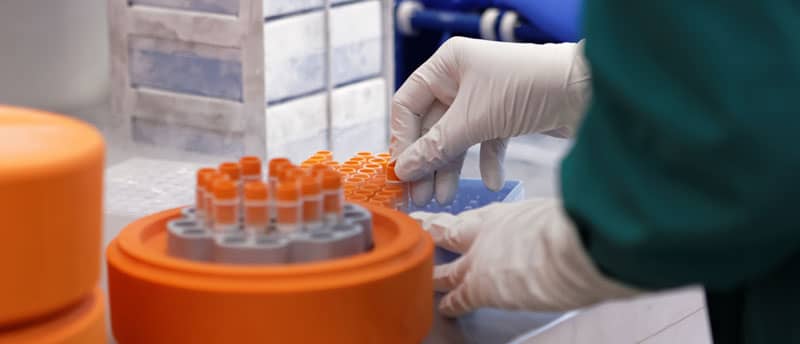This post was contributed to ConsumerSafety.org by Kate Harveston.
Consumers Lose When Drug Companies Fund Studies

Investigational drug studies are, in general, a good thing -- they help bring new medications to the market after ensuring that they are both safe and effective. Unfortunately, they also have a darker side. Drug companies have been known to fund studies, often paying for the privilege of having the study results slant in their favor. Can research funding sources affect the outcome of a study and what does that mean for the consumers using the resulting products?
From Lab Work to Clinical
It costs a lot of time and money to bring a new drug or treatment out of the lab and onto the market. It's estimated that bringing a new drug from the lab through clinical trials and finally to marketability costs between $266 million and $802 million -- and most of that money goes toward clinical trials. Right now, most of the funding for these trials comes from corporate sponsors. This ensures that the labs have the equipment, staff and tools they need to produce safe and effective treatments.
By switching to industry-funded trials, it's possible that fewer of these new drugs will make it to market. Trials funded by the pharmaceutical industry often lose funding because the pharmaceutical company isn't going to be able to make money on the product.
Industry funding could potentially give Big Pharma even more control over the medical industry than it already has. They could control what comes to the market by providing funding or pulling it from studies that won't result in products they'll be able to sell at an enormous markup.
Pharma Bro Is Just the Beginning
The saga of Martin Shkreli, quickly dubbed "Pharma Bro," shows the kind of power that industry-funded studies could have. As the CEO of Turing Pharmaceuticals, Shkreli purchased the drug Daraprim in 2015. Daraprim is currently the only FDA-approved drug for treating toxoplasmosis, a dangerous bacterial infection. Before Shkreli's acquisition, the drug sold for $13.50 a pill. After Turing acquired the rights to the drug, the company inflated the price to $750 per pill.
This price inflation put the drug out of reach for most of those whose lives relied on it - even those with insurance. Shkreli defended his price jump by comparing it to a company selling Aston Martin cars for the price of a bicycle and stating that he had to increase the price to enable his business to continue to remain profitable.
The key word there is profitable. Companies like Turing and the CEOs that run them are often more interested in profit than they are in the lives their medications could save.
The same thing happened in 2016 when pharmaceutical company Mylan hiked the price of the EpiPen, the fast delivery epinephrine system that helps to slow the effects of a severe allergic reaction to allow the patient time to get emergency medical care. In spite of dropping stock prices and public outrage, the CEO of Mylan, Heather Bresch, called the price hikes fair. The originally priced $100 twin pack of pens increased to over $600. Mylan argued that they only see about $50 of that in net profit, and school programs that provide free EpiPens to students balanced the scales.
Now imagine if these people, and the companies that they run, had control over new drugs and treatments before they even reach the market. The profit grabbing foundation is already there. With the ability to control whether or not drug studies get funding based solely on their profitability, many potentially lifesaving treatments might never reach the market. If they do make it, they will be so exorbitantly priced that the average consumer would never be able to afford them, even with health insurance.
Of course, this is all speculation, but it is not outside the realm of reality especially when you base your thinking on the behaviors of industry giants like the CEOs we've already mentioned. Even people on the bottom rungs, so to speak, can get in on the game. Many states have an anti-kickback statute that prevents doctors from receiving payments in return for prescribing a certain drug or treatment, and states are cracking down on the doctors who are receiving these kickbacks from pharmaceutical companies.
The Best of Both Worlds
It may be possible to allow industry funding without the worry of bias or prematurely closed studies, but it would require strict regulation to ensure that the companies providing the funding cannot interfere with the study or its results. This would give researchers the best of both words -- autonomy to complete their research, regardless of its outcome, and the funds to be able to finish their work.
Essentially, we need laws or rules that allow industry funding but prevent pharmaceutical companies from having any say or influence on the results of the research they fund. We also need regulations that keep them from revoking that funding if they don't like the projected outcome.
The pharmaceutical industry might not like this arrangement, but it is essential if industry investment is going to be allowed. The key here is to create a platform for unbiased research.
Researchers make incredible discoveries every day, but they often don't have the funding to translate those findings into life-saving treatments. Industry funding could help change that but only if the industry isn't allowed to meddle with the research that they fund. We could potentially have the best of both worlds but only if the pharmaceutical industry is willing to make some compromises.
